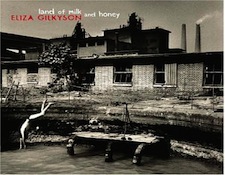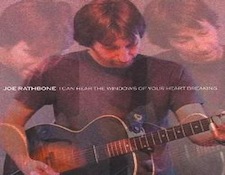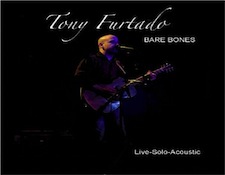It’s the time of year for saving money!

Eliza Gilkyson – Land of Milk and Honey
Red House Records
Ever since my freshman college film class when I was forced to
sit through Leni Reifenstal’s “Triumph of the Will,” the cinematic licking of
Hitler’s leather jackboots, I’ve been painfully aware that art can, and often
is, used for propaganda. Eliza Gilkyson’s political message on her latest CD, Land
of Milk and Honey, may be a slightly to the left of my own, but I can’t
deny the power of her work. She knows
how to use music to create a world whose potential for healing and justice
seems far better than our current reality.
The opening cut “Highway” paints a vision of Iraq far outside
the realm of our current president’s limited imagination, but much closer to
the truth than the White House’s fairy tales. “Get your big trucks rollin’ down
highway 9, pulverize the puppet, its payback time.” Another Gilkyson song
“Tender Mercies” opens with “Across the world she tapes explosives to her
chest, steps into a shopping mall. A life devoid of all of mercy’s tenderness
really isn’t any life at all.” This is powerful stuff. And like all superior propaganda, the message
is both subtle and sugarcoated in beauty.
Along with her own material, Gilkyson includes one song written
by her father, Terry Gilkyson, and one written by Woody Guthrie. The Guthrie
song, titled “Peace Call,” written sometime between 1951 and 1953, wasn’t
published until 1963. Miraculously, until now it had never been recorded, ever.
Here it gets the star treatment with Mary Chapin Carpenter, Iris Dement, and
Patty Griffin joining in on vocals. The song’s lyrics seem as if they were
written about current events rather than world affairs over 50 years ago.
Producer and engineer Mark Hallman manages to capture
Gilkyson’s fire and passion while still delivering a beautiful sounding album.
Even with limited performance forces employed on most songs the arrangements
sound lush and full. The largest group
of musicians were brought to bear on “Dark Side of Town” where Jon Dee Graham,
Stephen Bruton, and Mark Hallman all added harmony vocals behind Glenn
Fukunga’s upright bass, Mike Hardwick’s electric guitar, Steven Zirkel’s
trumpet, Scotty McIntosh’s saxophone, and Raul Vallejo’s trombone. Naturally the Woody Guthrie song also gets
the star sonic treatment. I expect we’ll hear it in heavy rotation on NPR.
Albums populated by songs with a definite political viewpoint
produce strong feelings in listeners, both positive and negative. I admire not
only Gilkyson’s musical artistry, but also her courage in releasing an album
that will not appeal to everyone. I don’t expect Gilkyson will be invited to
perform at too many Republican fund-raisers. Too bad for them…

Joe Rathbone – I Can Hear The Windows of Your Heart Breaking
Zakz Records
The trick to creating a perfect pop confection revolves around
getting the mix between sweet and sour just right. Joe Rathbone’s songs prove
that he has the recipe down pat. Every
song on his second solo release, I Can Hear The Windows of Your Heart
Breaking, displays a level of songwriting savvy usually associated with
contemporary masters like Elvis Costello or Nick Lowe. Rathbone’s songs are
both fresh and familiar, groundbreaking yet classic.
Great pop music requires that songs be mated with performances
and arrangements that “deliver” the
music. Joe Rathbone’s voice, with its strong falsetto, reminds me of Joe
Jackson grafted onto Brian Wilson. The arrangements echo back to the Knack,
Beatles, Todd Rundgren, and ELO. Layered musical textures combining dual
keyboard and guitar solos, all mated with crunchy electric guitar sounds, make
every song a sonic treat, a rocky road ice cream bar full of complementary
tastes. Every song displays an attention to sonic detail that borders on
excessive. No song escapes getting the star treatment complete with cleverly
multi-tracked and carefully processed vocals. But all this studio effort
succeeds spectacularly. Instead of sounding fussy and rarefied, the final
result yields vibrant yet sophisticated rock and roll.
Obviously producer/engineer David Henry should share in the
kudos for this album. All the songs were recorded in his studio. Without his
superb production skills and extensive hours of production time this album
couldn’t have turned out as sonically stellar as it has. Other members of the
David family also contributed their skills. Brother Jeff, played Cello, bass,
and mandolin, while his twin brother Ned added violin parts. The only other
musician was Craig Wright on drums and percussion. Joe Rathbone handled all
guitars, piano, keyboards, and vocals besides writing all the songs. Whew.
I’m a jaded old sod. On average I listen to ten new CDs per
week. Although I listen to everything that comes in the mail chute, many
releases get only a perfunctory listen because they don’t have the musical
substance to grab me. I Can Hear The Windows of Your Heart Breaking was
an exception. It caught me within the first ten seconds and didn’t let go till
the last cut. Great pop music can do that. I Can Hear The Windows of Your
Heart Breaking has the right stuff.

Funzalo records
Too many hacks and journeymen have already made a thorough
cliché of the phrase “hardest working man in show business.” But if not for
that, Tony Furtado certainly would deserve the approbation. On his latest
release, Bare Bones, Furtado proves that he can not only deliver a great
solo act, but sound like an orchestra while he’s at it.
Tony started his musical career as a banjo player. After winning a couple of festival
competitions and playing in a traditional bluegrass band, he expanded his
horizons by adding songwriting and slide guitar to his musical arsenal. Bare
Bones marks Furtado’s tenth CD since1990. Although Bare Bones isn’t
his first live album, it’s the first to feature Tony solo in a live concert
environment. Most of the songs on Bare Bones have been recorded
previously, but never with such stripped down yet vital arrangements.
The most immediately recognizable part of Toney Furtado’s
musical style comes from his drive. Like most great banjo players Tony
Furtado’s right hand can keep precise time, while defining a musical line with
remarkable exactitude. On “These Chains” his slide guitar lines create a
machine gun-like attack that never wavers. The medley “Angry Monk/Raleigh and
Spenser” maintains powerful forward momentum regardless of how florid and
intricate the melody lines become. Furtado’s voice combines a euphonic tonality
with just enough gritty rasp to deliver rootsy music with authority. His takes
on the traditional tune “False Hearted Lover’s Blues” and Tom Petty’s “Running
Down the Dream” make them very much his own.
Recording a live concert CDs usually requires a truckload of
gear and ancillary recording personnel.
But unlike a major label live concert release, Tony produced Bare
Bones all by himself. The sonic results vary from good enough for folk
music to absolutely first class. On some selections you might wish for a
quieter and less interactive audience, but as with most good live documentary
recordings, you get what is really there, warts and all. While sometimes the
sound isn’t pretty, it has a vibrancy and immediacy that makes it easy to
forgive slight sonic flaws.
On Bare
Bones Tony Furtado establishes his place as an artist capable of carrying a
whole show with nothing more than his voice and his instrument. Although for
some performers, a live concert is where you play it safe, Bare Bones
displays Tony Furtado’s willingness to take risks to create spontaneous live
music.





